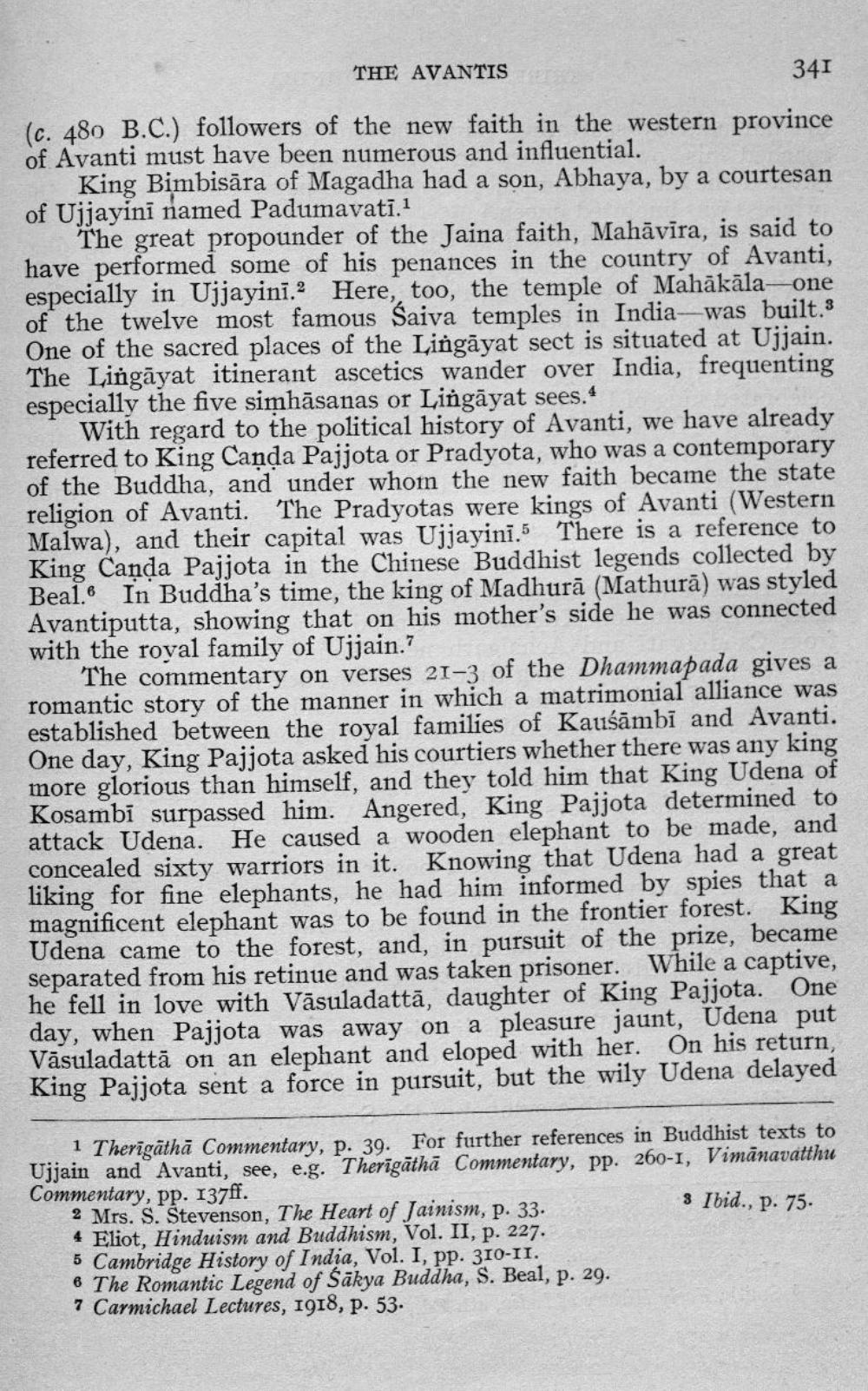________________
THE AVANTIS
341 (c. 480 B.C.) followers of the new faith in the western province of Avanti must have been numerous and influential.
King Bimbisāra of Magadha had a son, Abhaya, by a courtesan of Ujjayinī named Padumavati.
The great propounder of the Jaina faith, Mahāvīra, is said to have performed some of his penances in the country of Avanti, especially in Ujjayinī.2 Here, too, the temple of Mahākāla-one of the twelve most famous Saiva temples in India-was built.3 One of the sacred places of the Lingāyat sect is situated at Ujjain. The Lingāyat itinerant ascetics wander over India, frequenting especially the five simhāsanas or Lingāyat sees.
With regard to the political history of Avanti, we have already referred to King Caņda Pajjota or Pradyota, who was a contemporary of the Buddha, and under whom the new faith became the state religion of Avanti. The Pradyotas were kings of Avanti (Western Malwa), and their capital was Ujjayinī. There is a reference to King Caņda Pajjota in the Chinese Buddhist legends collected by Beal. In Buddha's time, the king of Madhurā (Mathurā) was styled Avantiputta, showing that on his mother's side he was connected with the royal family of Ujjain.
The commentary on verses 21-3 of the Dhammapada gives a romantic story of the manner in which a matrimonial alliance was established between the royal families of Kausāmbi and Avanti. One day, King Pajjota asked his courtiers whether there was any king more glorious than himself, and they told him that King Udena of Kosambi surpassed him. Angered, King Pajjota determined to attack Udena. He caused a wooden elephant to be made, and concealed sixty warriors in it. Knowing that Udena had a great liking for fine elephants, he had him informed by spies that a magnificent elephant was to be found in the frontier forest. King Udena came to the forest, and, in pursuit of the prize, became separated from his retinue and was taken prisoner. While a captive, he fell in love with Vāsuladattā, daughter of King Pajjota. One day, when Pajjota was away on a pleasure jaunt, Udena put Vāsuladattā on an elephant and eloped with her. On his return, King Pajjota sent a force in pursuit, but the wily Udena delayed
1 Therīgāthā Commentary, p. 39. For further references in Buddhist texts to Ujjain and Avanti, see, e.g. "Therīgāthā Commentary, pp. 260-1, Vimānavatthu Commentary, pp. 137ff. 2 Mrs. S. Stevenson, The Heart of Jainism, p. 33.
3 Ibid., p. 75. 4 Eliot, Hinduism and Buddhism, Vol. II, p. 227. 5 Cambridge History of India, Vol. I, pp. 310-II. 6 The Romantic Legend of Sākya Buddha, S. Beal, p. 29. 7 Carmichael Lectures, 1918, p. 53.




